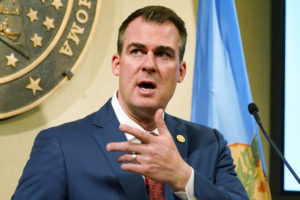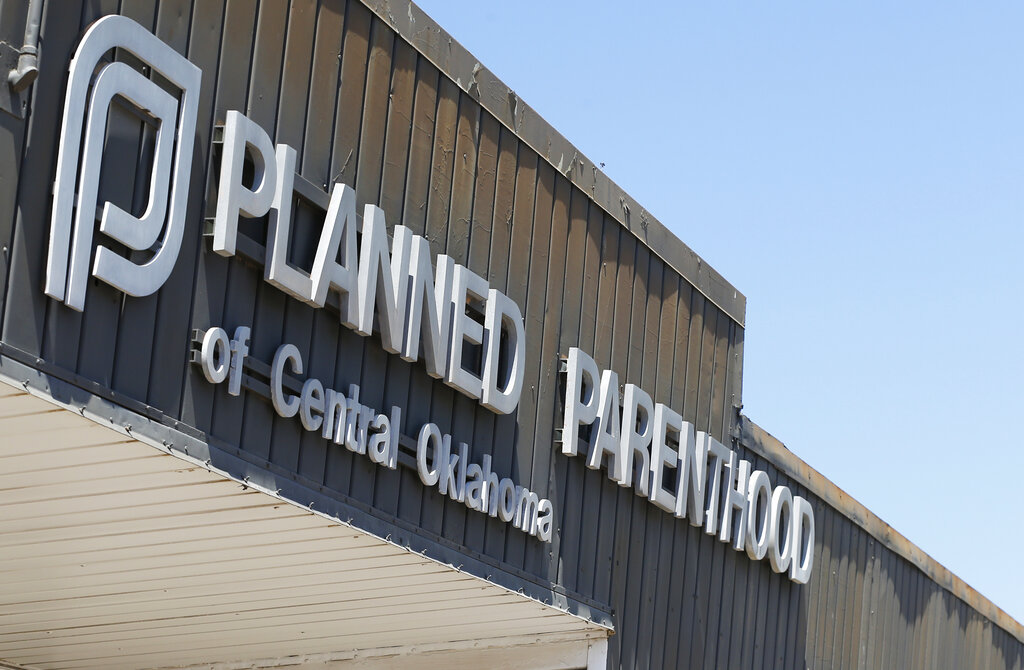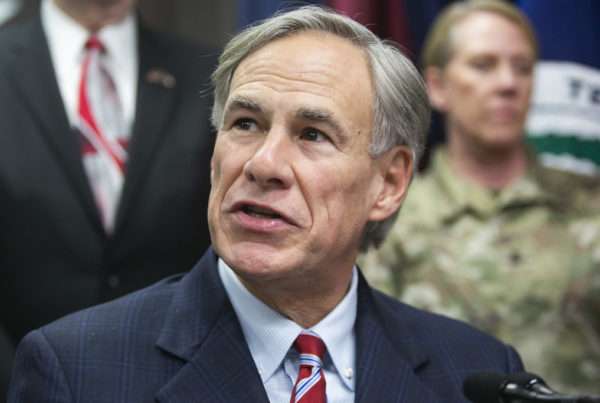The Oklahoma legislature passed a bill this week that abortion providers say could have dire consequences for Texans traveling out of state to receive care.
Texas itself has one of the strictest abortion laws in the country. Senate Bill 8 bans the procedure after about six weeks and allowing people to sue anyone who gets or facilitates an abortion. As a result, thousands of Texas have left the state to receive care.
Oklahoma’s Senate Bill 612, meanwhile, is one of the latest in a series of bills passed by conservative lawmakers across the country in the wake of Texas’ SB 8. But the restrictions in the Oklahoma bill go even further, making it a felony for any doctor to perform abortions in the state unless the pregnancy is life-threatening to the parent.
The bill is now headed to the desk of Gov. Kevin Stitt, who is expected to sign it into law. If so, Texans may have to travel even further to get care, according to Kathy Kleinfeld, an administrator at Houston Women’s Reproductive Services in the Heights.
“That will have devastating, beyond devastating effects,” Kleinfeld said.
Most of Kleinfeld’s patients who have traveled for abortion care went to Oklahoma. Clinics in other states like Louisiana don’t have the capacity to take on more demand, she said.
Some providers believe the Oklahoma law would be just the beginning. Although SB 612 doesn’t put the onus on private citizens to enforce the law, several other bills filed in Oklahoma this year do. At least seven other state legislatures have introduced copycat bills of Texas’ SB 8 over the past year.
“We’re worried about the southern states looking at this SB8 and trying to pass similar bills, leaving an entire region of the country without abortion services,” Kleinfeld said.
Last fall, nearly 1,400 Texans a month had gone out of state looking for abortion care. Almost half of these patients found care in Oklahoma, according to research from the University of Texas at Austin.
“In the first week of September, my colleagues who do the phone consults would be like, ‘wow, everyone is from Texas,'” said Dr. Iman Alsaden, who oversees Planned Parenthood clinics in Oklahoma and neighboring states.
Alsaden spent much of last summer preparing for Sept. 1, when SB 8 went into effect. She opened up services in Tulsa and trained staff in Oklahoma City — all in preparation of a new normal.
“We open a schedule, it gets filled right away,” Alsaden said. “People are waiting weeks to have appointments that should just be available to them within their communities.”

In this Feb. 11, 2021 file photo, Oklahoma Gov. Kevin Stitt speaks during a news conference in Oklahoma City.
AP Photo / Sue Ogrocki File
The bill’s author, Republican state Sen. Nathan Dahm, has called the measure the “strongest pro-life legislation in the country right now.” Supporters of the ban claim it’s legal because it targets the doctor rather than the person seeking the abortion. It would likely face legal challenges.
If signed into law, it would go into effect on Aug. 26, according to the New York Times. That means other states will deal with an overflow of new patients come this fall: More Texans and a whole new group of Oklahomans will likely be packing into clinics in the Mountain West, Great Plains and Southwest.
Planned Parenthoods in Colorado and New Mexico are already struggling to meet demand.
“It’s really daunting,” said Dr. Kristina Tocce, the Rocky Mountains Planned Parenthood medical director. “We’re not at a place where we know that we absolutely will be able to accommodate them in a reasonable amount of time.”
She said although the bills intend to target abortion in Texas and Oklahoma, they have inadvertently restricted access for women in multiple states.
“If so many more patients need the services, obviously the wait time for these appointments is much higher than it used to be,” Tocce said. “That displaces some local patients who then travel outside of their home state in which abortion is accessible, but not on a timeline that’s appropriate for them.”















